Propolis, Blood Sugar and Diabetes
Two studies reveal Propolis to be potent at balancing blood sugar levels while improving insulin sensitivity
by Angela Van Alten, Nutritionist and Beekeeper's Daughter

Scientists set out to investigate what effect, if any, propolis capsules had on blood sugar control and insulin resistance in rats with Type II diabetes.
They used what is called the 'euglycemic hyperinsulinemic clamp experiment' to measure the effects of propolis (this is considered the gold standard for this type of experiment and is considered very reliable). In this procedure, insulin is infused into the blood at a constant rate which results in a drop in blood sugar. To maintain blood sugar at a constant level, sugar is then infused into the blood. The amount of sugar infused to maintain homeostasis is indicative of insulin sensitivity.
Upon performing this, the scientists found that giving the propolis capsules to the animals balanced their blood sugar in a very significant way. It also improved a key measure of insulin sensitivity called the Insulin Act Index.
They went on to conclude that encapsulated propolis can in fact control blood glucose and improve insulin sensitivity.
The scientists did not state how much propolis was fed to the animals so it is difficult to say from this study exactly how much a human would need to ingest in order to obtain these blood sugar balancing effects.
A more recent study however, may offer some insight.
Propolis Extract May Help Treat Diabetes According to Study
Published in the Journal of Diabetes Investigation, this study evaluated the antioxidant effects of propolis tincture in diabetic rats.
Forty rats were randomly divided into five groups, one of which was a control group and two of which received propolis tincture for six weeks at doses of 100 mg/kg or 200 mg/kg.
Results showed that the propolis extracts significantly reduced blood sugar levels and kidney weight in the rats. Furthermore, propolis significantly increased the activity of the key antioxidants superoxide dismutase and glutathione peroxidase along with the total antioxidant activity in the kidney tissue of the diabetic rats.
With diabetes, the small blood vessels in the body are injured. When the blood vessels in the kidneys are injured, your kidneys cannot clean your blood properly. Your body will retain more water and salt than it should, which can result in weight gain and ankle swelling. You may have protein in your urine. Also, waste materials will build up in your blood. This causes your kidneys to enlarge.
About 30 percent of patients with Type 1 (juvenile onset) diabetes and 10 to 40 percent of those with Type 2 (adult onset) diabetes eventually will suffer from kidney failure. The fact that propolis reduced the amount of kidney inflammation is extraordinary.
How Much to Take?
As with all animal studies it is difficult to know what an effective dose is in humans. Until human studies are done, we can only make a best guess based on the information available from animal studies and other reviews of the scientific literature.
From this study we know that 100 mg/kg and 200 mg/kg was effective in rats. In a 150 lb human (68 kg), this would equate to 6.8 grams per day at 100 mg/kg and 13.6 grams per day at 200 mg/kg. 6.8 grams per day is reasonable but 13 grams is likely not for most people.
Because the minimum level of propolis administered to the animals was 100 mg/kg, we don't know if lower doses like 25 mg/kg or even 50 mg/kg might have been equally as effective. Regardless, it is always best to determine the minimum effective dose, so if you decide to test propolis for your blood sugar issues or diabetes, begin with 25 mg/kg and monitor your levels carefully. Increase if necessary. As always, it is best to work with your doctor if you choose to try propolis and at minimum inform him of all supplements that you are taking.
Recommended Propolis Brands
I often get asked which brands of propolis I recommend. I use, trust and recommend Dutchman's Gold line of propolis products only. This is because I can personally vouch for the quality control, sourcing and purity testing that they conduct. You can find them here.
†These statements have not been evaluated by the Food and Drug Administration. This product is not intended to diagnose, treat, cure or prevent any disease.
Sources:
Evidence Based Complementary and Alternative Medicine, 2012;2012:981896
|
|
|


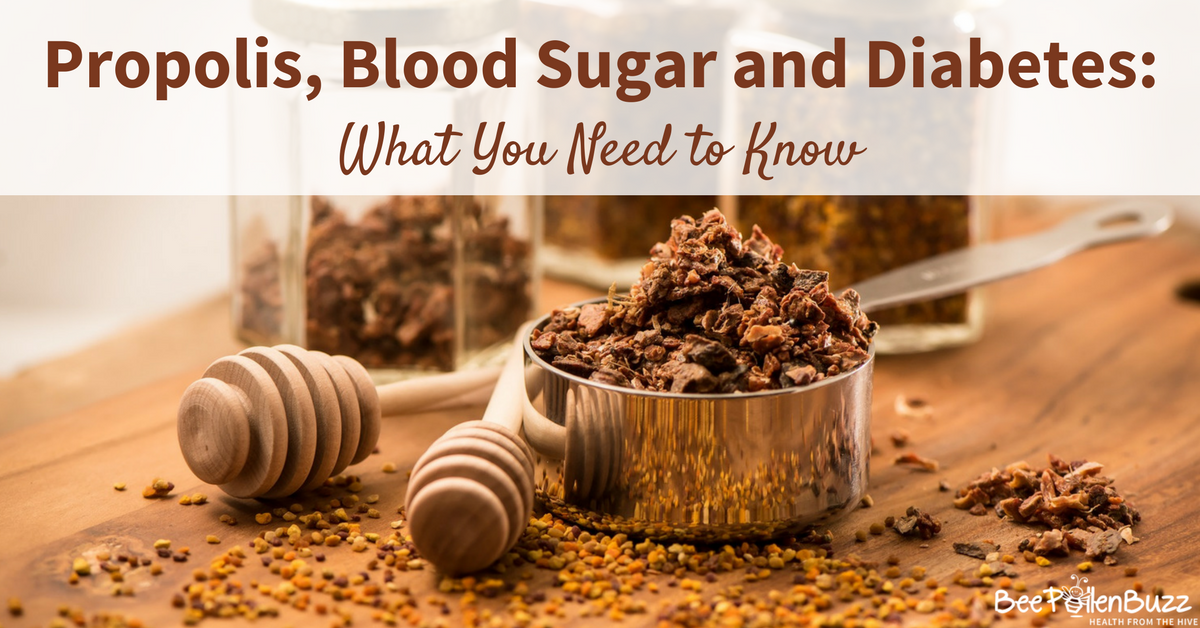

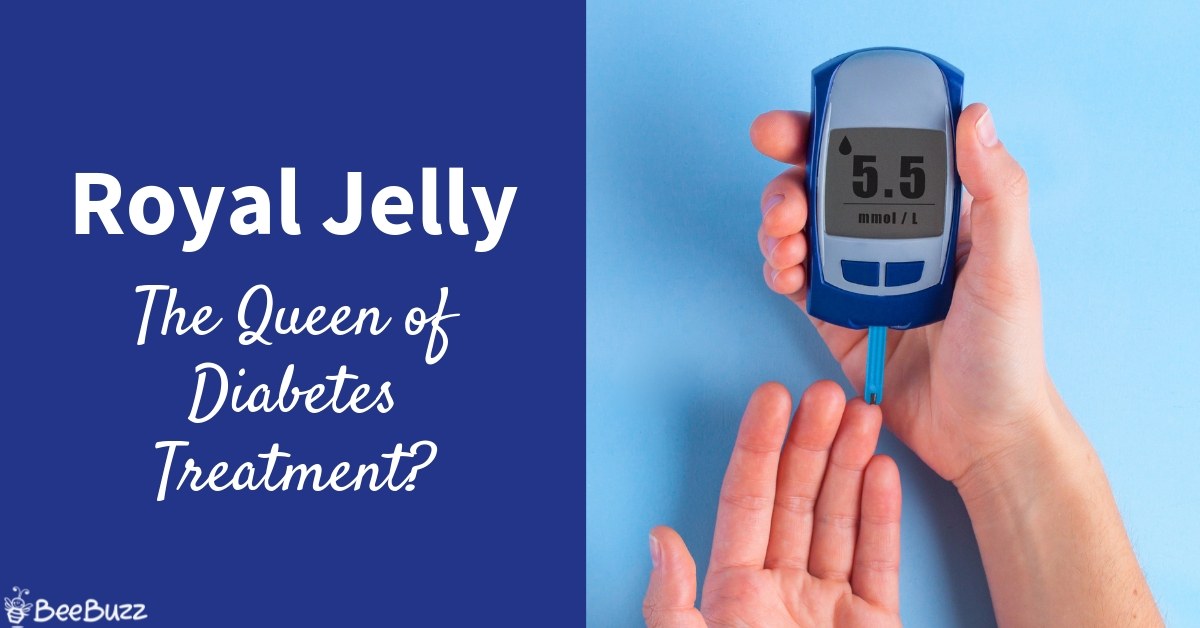
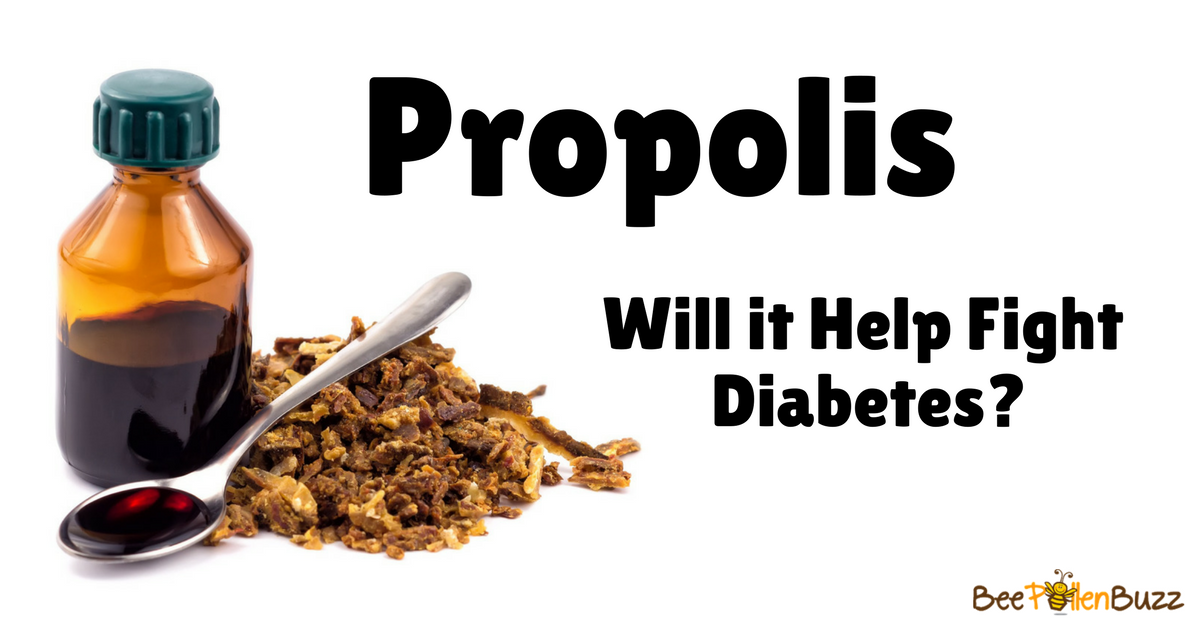
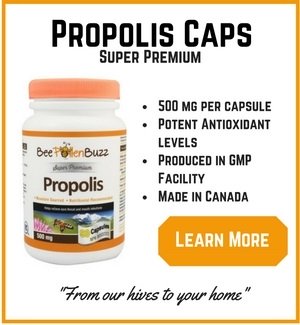
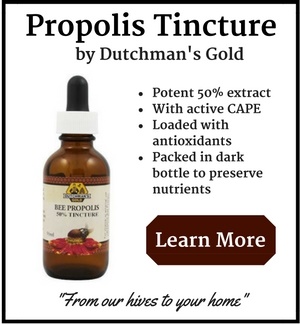

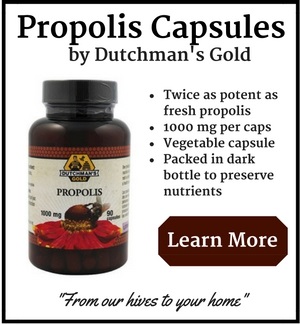






New! Comments
Do you have something to say about what you just read! Leave me a comment in the box below. I'd love to hear from you!